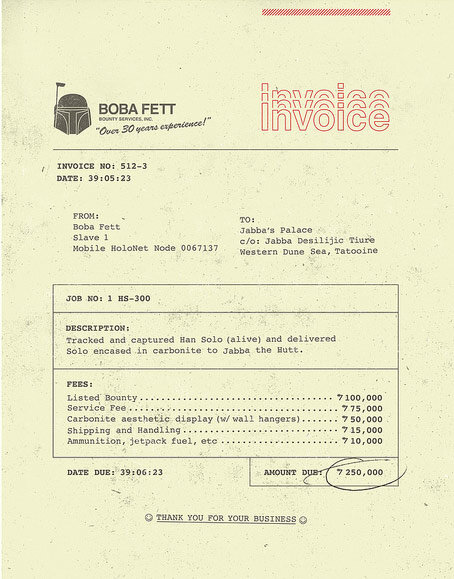Explore Small Business Finance Topics
Discover our most popular topics for Canadian solopreneurs and small business owners. From income tax and GST/HST to QuickBooks tutorials and managing your business finances, these guides are designed to help you move from financial uncertainty to financial confidence.
Click on any topic and scroll down to see related articles.
📑Canadian Income Tax
Guidance on filing and planning your Canadian taxes, from T1 and T2 returns to instalments
📊Managing Business Finances
From cash flow to pricing and metrics — learn to manage your business finances with confidence.
🏢 Canadian Business Structure
Should you incorporate? Stay informed on sole proprietorships, corporations, and registrations.
💰 GST/HST & QST
Understand how to register, file, and maximize input tax credits while avoiding common mistakes.
🧾 Guides and Tutorials
Practical accounting processes like reconciliations, journal entries, and reporting.
📝 Deductions & Expenses
Learn which expenses are CRA deductible and how to track them for maximum tax savings.
Quebec Taxes & Business
QST, Revenu Québec filings, Quebec payroll, and provincial rules every entrepreneur should know.
👤 Paying Yourself
Salary vs dividends, management fees, and how to pay yourself from your corporation or small business.
💻 QuickBooks Online & Tools
Tutorials, guides and time-saving tips for using QuickBooks Online effectively.
🏦 Money & Personal Finance
Personal finance strategies for entrepreneurs, from RRSPs to saving for taxes.

How to Record Shareholder Dividends in QBO
If you own a small business corporation in Canada, you’ve probably wondered: What’s the best way to pay yourself? The answer, in most cases, is either via salary (as an employee) or dividends (as a shareholder) or in limited cases, as a subcontractor with management fees.
I have a number of resources that delve into the best method of owner compensation. In this tutorial, however, I’m simply going to briefly review dividends and then show you how to record dividends in QuickBooks Online (QBO).

How to Account for Bad Debts and Record it in Quickbooks Online and Desktop
One of the more unpleasant aspects of being a business owner is having to chase clients that do not pay. It is frustrating, stressful and disheartening, while attempts to collect are an unproductive use of time and can have a significant impact on cash flow, particularly if you are unprepared. A bad debt, in accounting terms, refers to an amount charged to a customer that is never paid. While the original sale would have been reflected as revenue, the uncollectible bad debt would then have to be written off as a separate line item on the profit and loss statement

What Is a Reversing Journal Entry And How to Enter it in QBO?
Journal entries can be perplexing for small business owners/non accountants, or accountants/bookkeepers in the early stages of their careers. Reversing journal entries, sound even more complicated.
In this post (and related video tutorial), my goal is to show you that they are relatively straightforward and, once understood, an incredibly useful bookkeeping tool.

Customize Your QBO Reports to Improve Your Bottom Line and Save Time
One of the most powerful features of QuickBooks Online (QBO) is the ability to customize reports. There are a variety of ways in which you can go from a basic financial report to one that gives you insights that can then easily be reviewed or shared with your accountant and/or stakeholders. Perhaps more importantly, the ability to customize your reports can have a direct impact on your bottom line.

What Are Bank Reconciliations and Why Every Business Should Do Them
Many small business and self employed owners take on the responsibility of doing their own accounting. You may do all of your own accounting from set up to preparing your own small business tax return OR you may have an accountant who simply takes care of your year end and tax reporting. Accounting software has made doing your own accounting much simpler and allows for most business owners to do it, regardless of whether they have some sort of accounting background. There is however a learning curve and certain accounting steps that not everyone is aware of and that are very important to ensure the accuracy of your books. One of these is are bank reconciliations.

How to Find Any Transaction in QBO (Fast!)
When you enter a transaction in QBO, there are only two final destinations for it - the balance sheet or profit and loss report. Additionally, depending on the type of transaction it will often go to a “subledger”. For example, if you enter a sale or invoice, you will find it in the sales section either under the customer or in the list of invoices.
Similarly, if you an enter an expense, you can find it in the expenses section, under the supplier (assuming you entered the name of the supplier) or if came from your bank or credit card account, you can find it in the categorized section of the banking download.

4 Accounting Transactions that Use Journal Entries and How to Enter them in QBO
Accounting software has come a long way in the past few years. Although a good bookkeeper can be invaluable, It has become fairly easy for business owners and their support staff to take on the responsibility of entering day to day transactions while they employ accountants for the more complex aspects of their accounting and tax. While entering the majority of transactions in software, such as Quickbooks Online is fairly straightforward, there are transactions that require somewhat special treatment discussed below:

What is Capital Cost Allowance and How Does it Impact Your Business
Frequently a client of mine will purchase a high ticket item such as a computer or a piece of furniture and will simply show it as an expense on their profit and loss. Since you purchased something that relates to your business, it should be considered to be a deduction and classified as an expenses.
Unfortunately, accountants and revenue agencies do not see it this way. From their perspective, an item that is purchased for a business, whose value extends beyond one year, is actually an asset that should be depreciated over the useful life of the asset. In other words, the expense that you can claim for the asset is only the portion of the asset that is used in the year that you claim it.
While accountants refer to the amount of the asset that is expensed each year as depreciation, Revenue Canada refers to this as capital cost allowance or CCA.

What Version of QBO Is Right for your Business
If you are thinking about upgrading from your current accounting system or spreadsheet or starting your new business venture with accounting software, QuickBooks Online is a good way to go. It is perhaps the most well known accounting software and, having used both the desktop and online versions for many years, it can be a great tool for anyone who wants to track their self employed/small business finances.
When you have made your decision, you will have to determine which version of QBO to get. This requires that you understand what features are necessary for your business.

19 Features to Consider When Selecting Small Business Accounting Software
A good accounting software can be an invaluable tool for businesses. Before choosing an accounting software it helps to have a detailed understanding of what your accounting system can do for you . This involves analysing the key aspects of your business, determining what is essential (eg. invoicing, expenses, banking, reports) and what you would like to have (eg. time tracking, credit card payments, banking downloads etc.). By reviewing your requirements in advance and building a checklist, you can make a better decision about something that goes to the very foundation of your business. Below are some important features to consider:

How To Close Your Year End (or Period End)in QBO
Doing your own accounting in accounting software such as QuickBooks Online (QBO) is relatively straightforward especially if you have set up your QBO file optimally. You periodically enter invoices, expenses, bills and allocate transactions from the banking download. And while QBO is designed for non accountants, it is also equally appreciated by many accountants for its simplicity and user friendliness (although, as with any software product, there are grievances).
There does come a point, however, when you might notice that some things don’t look right. The bank balance or credit card balance might not match to the QuickBooks balance or your income and/or expenses might seem much too high or inconsistent with previous years. The solution to identifying and fixing these discrepancies is to perform what accountants refer to as year end (or month end) closing procedures, that if done properly, should correct any discrepancies that crop up. The ultimate goal of closing the books monthly or annually is to ensure that you can rely on the integrity of your data.

How to Read a Profit and Loss Statement
Whether you're just starting out or a seasoned business owner, it is imperative to understand the financial health of your business. This can be done via a variety of different types of analyses. In terms of the big picture and overall performance of your business, the reports that are collectively referred to as the financial statements are the most crucial .
The financial statements typically comprise three reports: the balance sheet, profit and loss statement and statement of cash flows.
Some of you might be intimidated by the technical terminology of accounting. But, in reality , the profit and loss statement (also know as the income statement) is actually quite easy to read and understand especially as it relates to your own business.

9 Tips For Managing Your Customer Receivables
Any sales that occur within a business where payment is not made up front (eg. retail) or in advance of the sale (eg. down payment for a car), is reflected as an “Accounts Receivable”, which is accounting terminology for amounts owing by customers to a business. It is good to have accounts receivable, as this means you are generating sales. The downside, however, of having accounts receivable is that it represents cash that you don't have now, and along with that comes the possibility that your customers won’t pay you. Luckily a good system to manage your accounts receivable will help to reduce the number of non paying customers thereby avoiding bad debts. Below are some steps to help manage and collect on your accounts receivable:

How To Account for Car Expenses and Reflect Personal Use
If you use your car for business then you will want to track car expenses more granularly to see what you have spent in the current period and to compare with prior periods and also to make it easier to reflect the breakdown on your small business taxes

Deferred Revenue and its Impact on your Small Business
Most small business owners are familiar with the concept of revenues, which is essentially the total sales of their product or service, to customers and clients, prior to deducting any costs. Revenues are a crucial component of business’ profit and loss statement and it is essential that they are accurate so that the business owners may effectively analyze the profitability of their businesses. Additionally there are third parties for which the accuracy of the revenues, and corresponding financial statements, is essential for effective decision making. Third parties include tax authorities, banks, partners and key employees (on which remuneration/bonuses might be based).
